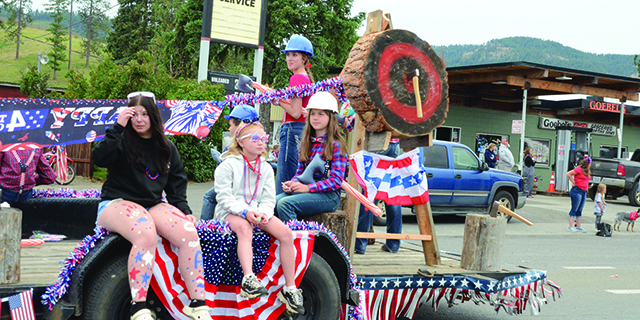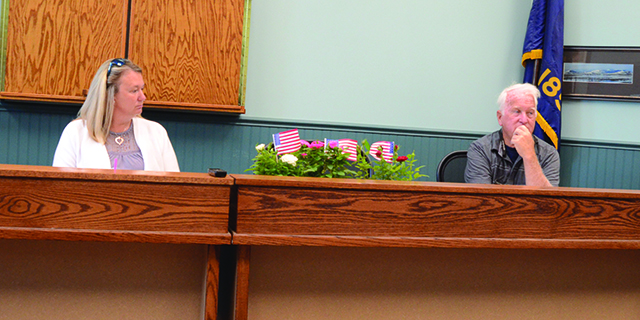Changing attitudes: It’s not a rite of passage
Published 4:42 am Wednesday, April 11, 2018

- Howard
The need to provide meaningful education on the dangers of underage drinking and drug use in Wallowa County has never been greater. A few facts:
• Alcohol and drugs are the leading causes of crime among youth.
Trending
• Alcohol and drugs are the leading factors in teenage suicide.
• More than 23 million people older than 12 are addicted to alcohol and other drugs.
According to the last Student Wellness Survey in 2016, Wallowa County’s 6th, 8th, and 11th graders all reported higher alcohol use than the state average.
Young people, like adults, drink alcohol for many reasons. Some may seem obvious, but understanding the feelings behind these reasons — as well as how everyday teen life comes into play — can be difficult.
Young people often drink to check out from family problems or issues with school and grades; loneliness, low self-esteem, depression, anxiety disorder and other mental health issues can contribute; they may drink to deal with the pressures of everyday social situations, to change their image or to fit in when moving to a new school or town; to gain confidence or lose inhibitions.
As kids get older and alcohol and drugs enter the picture, parents are faced with a unique set of challenges. Parents often forgive underage drinking as a “rite of passage.”
Trending
They can simply sit back and hope their kids will “get through it,” or they can change their attitude and take an active role in learning about alcohol and drugs — and help their kids to do the same.
And it is important to take advantage of “teachable moments” when parents and other adults can help kids learn about underage drinking and drug use. It’s not so much about having “the big talk,” but about being there for them when the issues come up — on TV, at the movies, on the radio; about celebrities or sports figures or about their friends.
According to the National Council on Alcoholism and Drug Dependence, here are guidelines that can help parents talk about alcohol and drug use.
Listen before you talk. For kids, knowing that someone is really listening is most important. Ask open-ended questions. Be involved. Be honest and open. Be positive: talking about these issues can build bridges rather than walls.
And remember, addiction is a chronic, progressive disease that can be linked to family history and genetics. So, if there is a family history of problems, be matter-of-fact about it, as one would be with any other chronic disease, such as heart disease, diabetes or cancer.
“Alcohol and drug use is a very risky business for young people,” said Andrew Pucher, President and Chief Executive Officer of NCADD, “and parents can make a difference. The longer children delay drinking and drug use, the less likely they are to develop problems associated with it. That’s why it is so important to help your child make smart decisions about alcohol and drug use.”
In fostering “changing attitudes,” parents can help kids understand that drinking isn’t a “rite of passage.” It’s not a way to feel or be independent, “cool,” or to fit in socially.
Young people can learn that alcohol is not necessary for having a good time. We can learn to respect another person’s decision not to drink alcohol.
This month, Wallowa County Prevention is celebrating Alcohol Awareness Month for the first time to raise public awareness about underage drinking and encourage parents to speak to their kids early and often about alcohol and other drugs.
Please check the community calendar for upcoming events or “Like” Wallowa County Prevention on Facebook for updated posts about upcoming activities and additional information.
Additionally, I urge local businesses, community organizations, colleges, schools, administrators and government agencies to get involved in these activities.
It can make a tremendous difference in our community as we reach out to those who are most vulnerable and help our next generation avoid the many problems that underage alcohol and drug use can bring.
If you are a business or parent who would like more information or tools on how to talk to your kids about alcohol and drugs, please email Jessi at jhoward@oregonbhf.org. If you are a business who would like to support Alcohol Awareness Month, email me and I can bring you a sign for your window in support of this movement.
Jessi Howard is Drug and Alcohol Prevention Coordinator for Wallowa County.









